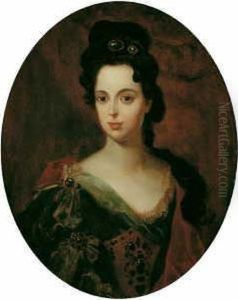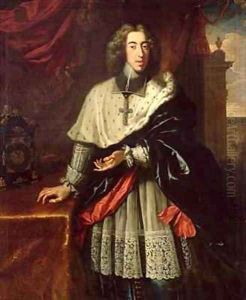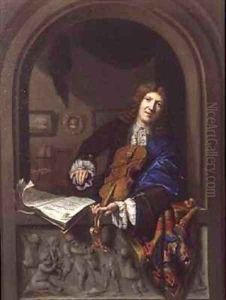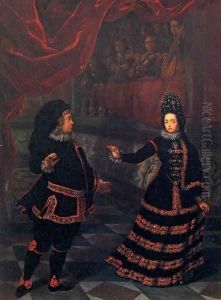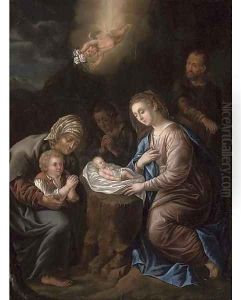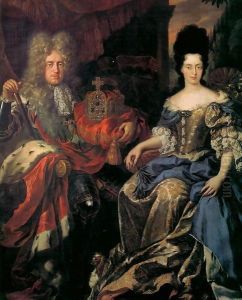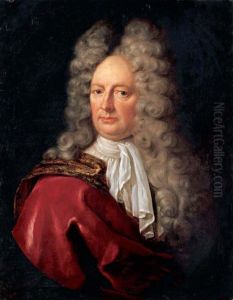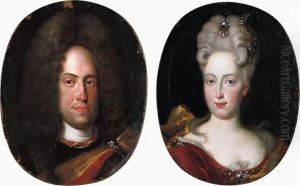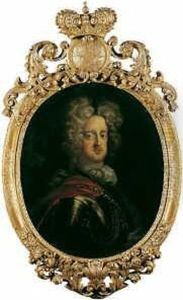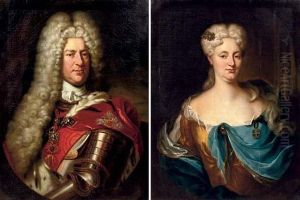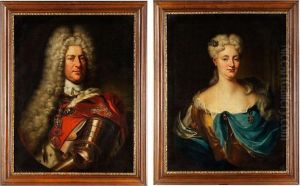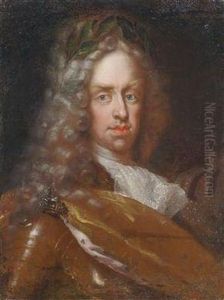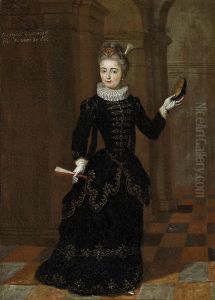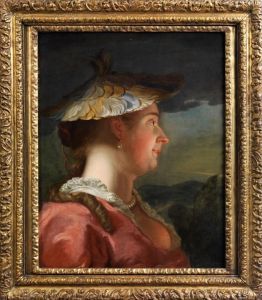Jan Frans Douven Paintings
Jan Frans Douven, born in 1656 in Roermond, was a distinguished Dutch painter known for his masterful portraits and historical scenes. His early life in the Dutch Republic, specifically in the province of Limburg, was marked by the rich cultural and artistic environment of the 17th century, which undoubtedly influenced his artistic development. Douven's talent was recognized early on, and he received his initial artistic training from his father, who was also a painter. This familial artistic background provided him with a solid foundation in the principles of painting, which he would continue to build upon throughout his career.
In 1682, Douven embarked on a pivotal journey to Italy, where he was deeply influenced by the works of the Italian masters. This experience enriched his palette, introduced him to the Baroque style, and honed his skills in composition and the use of light. After returning from Italy, Douven's career took a significant turn when he entered the service of Johann Wilhelm, Elector Palatine, in Düsseldorf. This patronage was a testament to Douven's talent and allowed him to become a court painter. In this role, he was not only tasked with creating portraits of the Elector and his court but also with documenting various courtly events and ceremonies. His works from this period are notable for their elegance, attention to detail, and the vivid portrayal of his subjects.
Douven's style is characterized by its refinement, vibrant colors, and the expressive portrayal of his subjects. He had a keen eye for detail, which is evident in the intricate clothing and backgrounds of his portraits. His historical scenes are celebrated for their dynamic compositions and the ability to convey the grandeur of the events depicted.
Throughout his career, Douven enjoyed considerable success and recognition. His works were sought after by the nobility and the wealthy, and he played a significant role in the cultural life of the court in Düsseldorf. Despite the passage of time, Jan Frans Douven's contributions to the Dutch Golden Age of painting and his influence on the development of portrait and historical painting remain significant.
Jan Frans Douven passed away in 1727 in Düsseldorf. His legacy is preserved in the collections of major museums and galleries, where his paintings continue to be admired for their beauty, technical skill, and historical importance.
